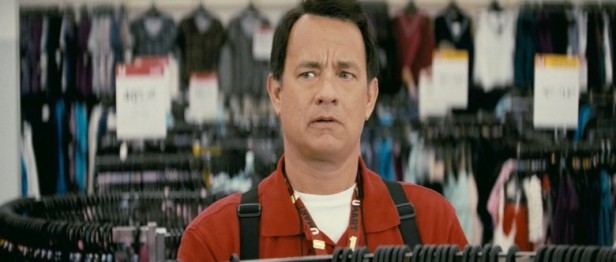Julian Schnabel was nominated for Best Director for his work on this foreign film about a unique disability.

Julian Schnabel has an extreme fascination with the eye. This is necessary for “The Diving Bell and the Butterfly” because it becomes the sole tool of Jean Dominique Bauby. But it is an important correlation, the eye being a source of emotion and that which makes us human.
This is a brilliantly directed film, and it’s evident from the first frame. We look out the eyes of a man. The image is blurred, but we can see he is in a hospital. The doctors bend down to speak with him at eye level, but he looks not at their mouths or faces but directly into their eyes as if to say, “I couldn’t care less what your opinion is, but who the hell are you and where am I?” We can hear the man’s internal thoughts, and we can tell he is cynical, impatient, but within moments, both he and the audience will discover he has reason to be.
Jean Dominique Bouby (Mathieu Amalric), or Jean-Do, was the real life editor of Elle fashion magazine when in 1995 he suffered from a stroke that left his entire body, with the exception of his left eye, completely paralyzed. His mind was perfectly intact, but he became trapped in this vegetated state. Within time, Jean-Do learned to communicate by blinking his eye as the alphabet was read to him. Using this process, Jean-Do dictates his memoirs in what is an inspirational beauty each time he begins to communicate.
I was so touched by Jean-Do’s sudden change of heart about his situation and his commitment to preserve his life in the only way he can. In the beginning of the film, Jean-Do is pessimistic, and who wouldn’t be? But Henrietta (Marie Josee Croze), his speech therapist, is such a warming presence, demonstrating care and love for this hopeless man. She serves as a catalyst to his communication, making life possible for him. His other motivation is an old friend that was taken hostage in Beirut for four years. He tells Jean-Do, “Don’t lose what it is that makes you human.” Jean-Do lives by this mantra, but it is his own inner strength that allows him to accomplish such a feat.
And that is the ultimate question “The Diving Bell and the Butterfly” proves: What makes a man? As Jean-Do says, he still possesses his imagination and his memories. Only the human mind can accomplish a feat such as Jean-Do’s, but the boundaries of Jean-Do’s mind are no different than an able person. Perhaps a film like this answers the questions for many who live in a vegetated state. Even a man who cannot communicate still possesses the abilities of his mind. So does that make him any less of a man?
The performances are truly something special. Amalric can demonstrate emotion and expression with just a shift of his eye. But similar characters have been portrayed better. The reason behind such a powerful connection to the protagonist is the internal perspective Schnabel provides the audience. We are given a window into the mind of an ordinary man, and the attachment that brews inside you for this person is unlike any other. We see the people he sees, the objects he gazes upon and the brief moment of darkness when he blinks his eye. We don’t just understand this man; we are this man. We admire the same subtleties in his nurses’ facial expressions, like Henrietta’s soft skin or her quaint smile.
Admittedly, Schnabel was given good material. There aren’t many stories that are this heartbreaking and heroic at the same time. But in using the full stretch of his imagination, Schnabel allows us to better understand ourselves.
4 stars





